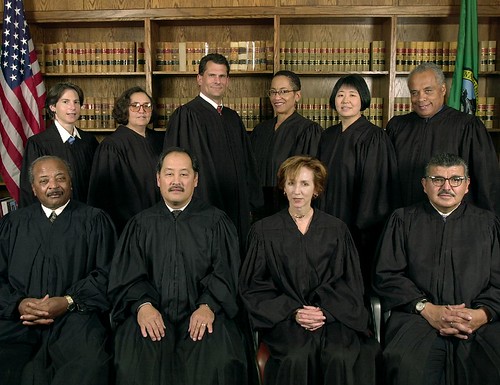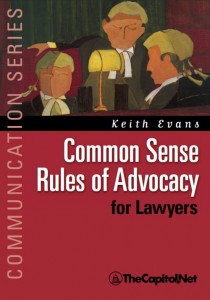When handled properly, good legal writing stands out.

There are four basic questions that should be asked in considering whether a document meets the standards of good legal writing:
- Is it easy to read?
- Is it interesting?
- Does it work?
- Is it as short as possible?
If you are able to answer yes to all of these questions, your piece will stand out from the crowd and be a good example of written advocacy.
One of the biggest challenges of written advocacy is determining how much advocacy to use. At the outset, ask yourself what your objectives are for writing the piece. Advocacy is only required when you want to persuade someone to a certain point of view, and it does not come into play until you have an objective.
One of the most important goals of any written document is to be taken seriously. Even if your writing is accurate, it will be viewed poorly if it contains spelling mistakes and cumbersome sentences. The way in which you write reveals a great deal of information about yourself, including the words you use and the structure of your sentences. In many ways, writing is a good deal like body language, and it is your responsibility to know what your writing says about you.
Keep your writing concise. Lengthy paragraphs should be broken up so they are more easily read. Keep a brisk pace to your writing by using short sentences, occasionally  varying the length of your sentences and writing in plain English rather than legalese.
varying the length of your sentences and writing in plain English rather than legalese.
To learn more about effective writing, consider our 2-day Word Workshop: Writing for Government and Business: Critical Thinking and Writing, and Writing to Persuade.
Reference: Rule 89 Good Legal Writing is Easy to Read and Interesting, Accomplishing its Goal in as Few Words as Possible, in Common Sense Rules of Advocacy for Lawyers, by Keith Evans
For more information about becoming a better advocate, see these resources from TheCapitol.Net:
- Common Sense Rules of Advocacy for Lawyers, by Keith Evans
- Persuading Congress, by Joseph Gibson
- Live courses in Washington, DC:
- Effective Executive Briefings: The Art of Persuasion
- Writing to Persuade: Hone your persuasive writing skills
- Strategies for Working with Congress: Effective Communication and Advocacy on Capitol Hill
- Capitol Hill Workshop
- Capitol Learning Audio Courses:
For more than 40 years, TheCapitol.Net and its predecessor, Congressional Quarterly Executive Conferences, have been teaching professionals from government, military, business, and NGOs about the dynamics and operations of the legislative and executive branches and how to work with them.
Our custom on-site and online training, publications, and audio courses include congressional operations, legislative and budget process, communication and advocacy, media and public relations, testifying before Congress, research skills, legislative drafting, critical thinking and writing, and more.
TheCapitol.Net is on the GSA Schedule, MAS, for custom on-site and online training. GSA Contract GS02F0192X
TheCapitol.Net is now owned by the Sunwater Institute.
Teaching how Washington and Congress work ™

